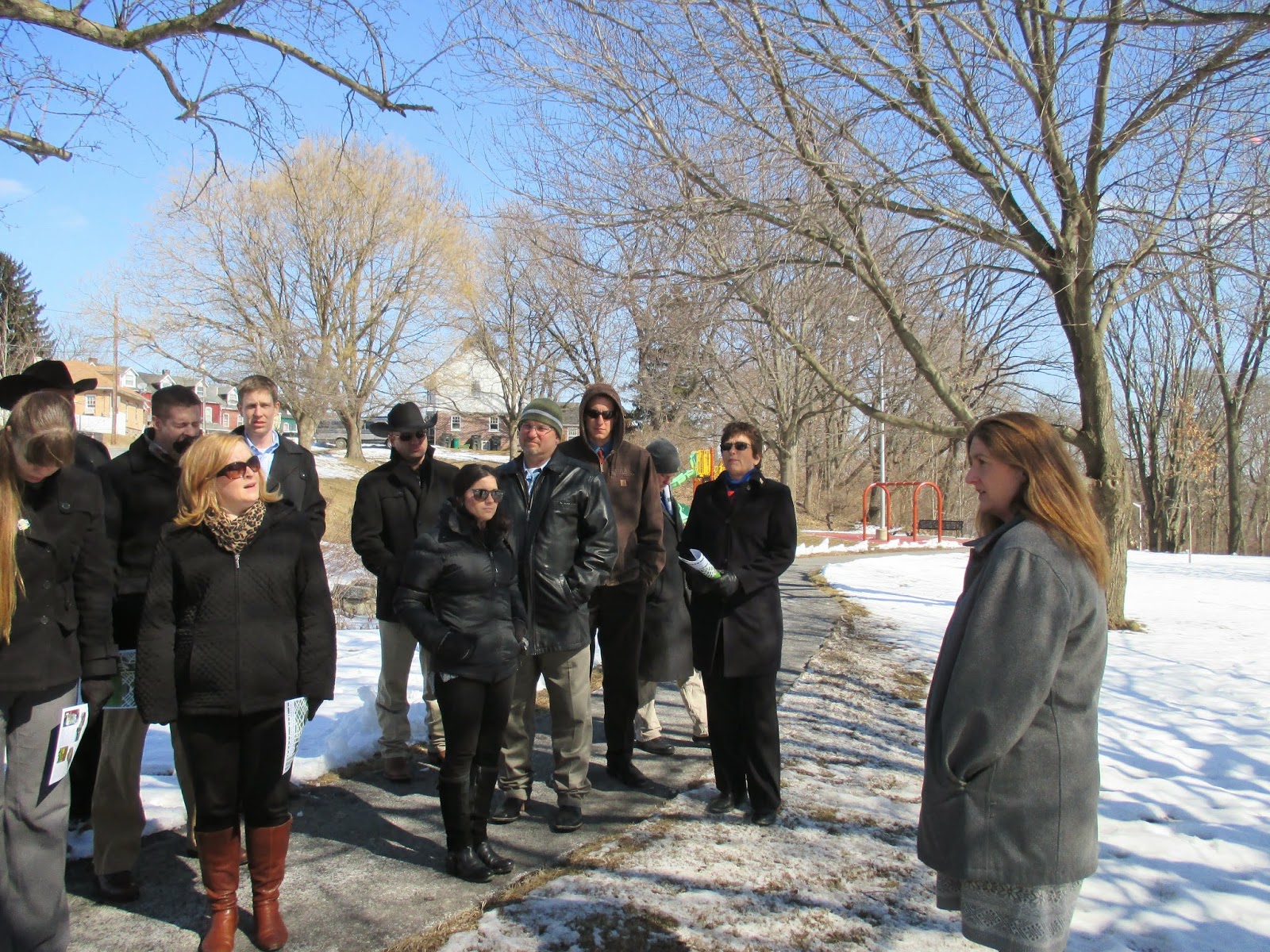Tuesday, February 24th started at the American Bankers Association with
Nate Franzen, President of Agribusiness for First Dakota National Bank,
giving a presentation on staying in touch with activities in
Washington, D.C.
 |
| Nate Franzen |
Nate is a SDARL class I graduate, and he spoke on the growing disconnect
between agricultural and policy makers, and how we as South Dakotans
can keep that from happening. We as producers also have an obligation
to pay attention to the rest of the world, because leadership is not a
spectator sport.
 |
| Even and Pravecek |
|
Brittany Dengler, senior research manager with the ABA, spoke on
national economy trends. Consumers are behind the modest growth in the
GDP, and they benefit from steady job growth. There is, however,
concern over the number of unemployed long term, over 27 weeks. Also
troubling is the slow gains in construction and manufacturing jobs lost
in the recession. This leads to well below normal gains in the housing
sector.
Michael Torrey, originally of Kansas, now of Michael Torrey Associates
of Washington, D.C., talked to the class about how his firm lobbies for
and helps manage their clients. They focus on building relationships
between clients and policy makers that produce substance on issues.
They lobby legislative and executive branches of the government.
 |
| Haugen, Youngblom, Osterman and others |
 |
| Michael Holland thanked by Jim Kanable |
Michael Holland, Director of government affairs for Monsanto, visited with the class
about their top priorities in ag. They're focusing on maintaining the
Renewable Fuels Standard, trade, and section 179 dealing with taxation
and accelerated depreciation. GMO labeling is a hot topic that is
driven by opponents to rid the country of those products, and they're
working diligently to influence legislation on his issue. One of
Monsanto's stated goals is to double the national average yield by 2030.
ABA Vice President of Congressional Relations Ed Elfmann focused on how
the ABA deals with all legislators and ag committees in the federal
government. They are dealing with record farm incomes, even though it
has declined recently. FDIC insured that lenders have been diminished by
nearly two-thirds in the last 28 years. Farmers have been restrained
in their borrowing for capital investments. He also communicated that
84% of the farm bill is geared to fund nutrition. He commented on
congressional issues facing ag lending in 2015.
Farmer Mac is a bridge between capital markets and ag producers, helping
provide security and coverage on loans. They graciously sponsored the
noon
meal, and Larry Jones gave a presentation on how their process works.
Ag producers get more options because their lender can spread risk out.
The day switched gears a little when Ryan Bennett, the director of
government affairs for the National Milk Producers Federation, gave a
presentation on what they do. They represent dairy cooperatives in all
50 states, and are ran by a board made up of mainly producers. In
addition, they also help manage several other non-coop dairy
institutions and other check-off funded organizations. Major policy
interests range from dairy policy to trade to immigration.
 |
| Reuvekamp adding insight in dairy topics |
In keeping with producer oriented speakers, Matt Mika with Tyson Foods,
Inc, gave his talk as Director of Government affairs. Tyson is number 1
in chicken, number 1 in beef, and number 2 in pork, so they wield a big
stick when it comes to ag policy. They are following issues like
Waters of the U.S. (WOTUS), trade, and United States Department of
Agriculture (USDA) and Health and Human Services (HSS) dietary
guidelines.
 |
| Rusche, Johannsen |
CropLife America representative Rebeckah Adcock is the Senior Director
of Government Affairs stopped by to talk shop regarding policy on issues
that affect pesticide and herbicide use, among other things. WOTUS is
one of the major issues they're facing now, stemming from some states'
lack of action on non-navigable, new state waters. CropLife America see
this as a Clean Water Act issue that needs to have a rule written that
makes sense.
 |
| Kristina Butts speaking; Schley making notes |
Kristina Butts is with the National Cattlemen's Beef Association (NCBA)
as the Director of Federal Relations. After a brief synopsis of what
NCBA does and how it's organized, she explained more about how they're
trying to influence the USDA and Health and Human Services (HSS) dietary
guidelines. The major issue taken with this issue is that the advisory
board does not contain the proper personnel and is not addressing
issues within the scope of the guidelines. She also spoke to trade
opposition of WOTUS.
 |
| Bryan Dierlam |
The Cargill Federal Relations Director, Bryan Dierlam, came before the
class last and encouraged us to fight any fight united as producers, and
fight it on the battlefield of our choosing, rather than fight and die a
battle we can't win. He spoke to worldwide development of food
production ability as well as infrastructure investments for food
distribution. Trade issues and labor were also discussed.
 |
| Samson, Johannsen |
The ABA-day was being concluded by hosts Ed Elfmann and Nate Franzen, followed with a -for SDARL groups traditional- walking tour led by the newly retired John Blanchfield. Blanchfield took us on a brisk hike to Farragut Square and the White House, keeping us entertained with historical stories.

Submitted by Warren Symens



































